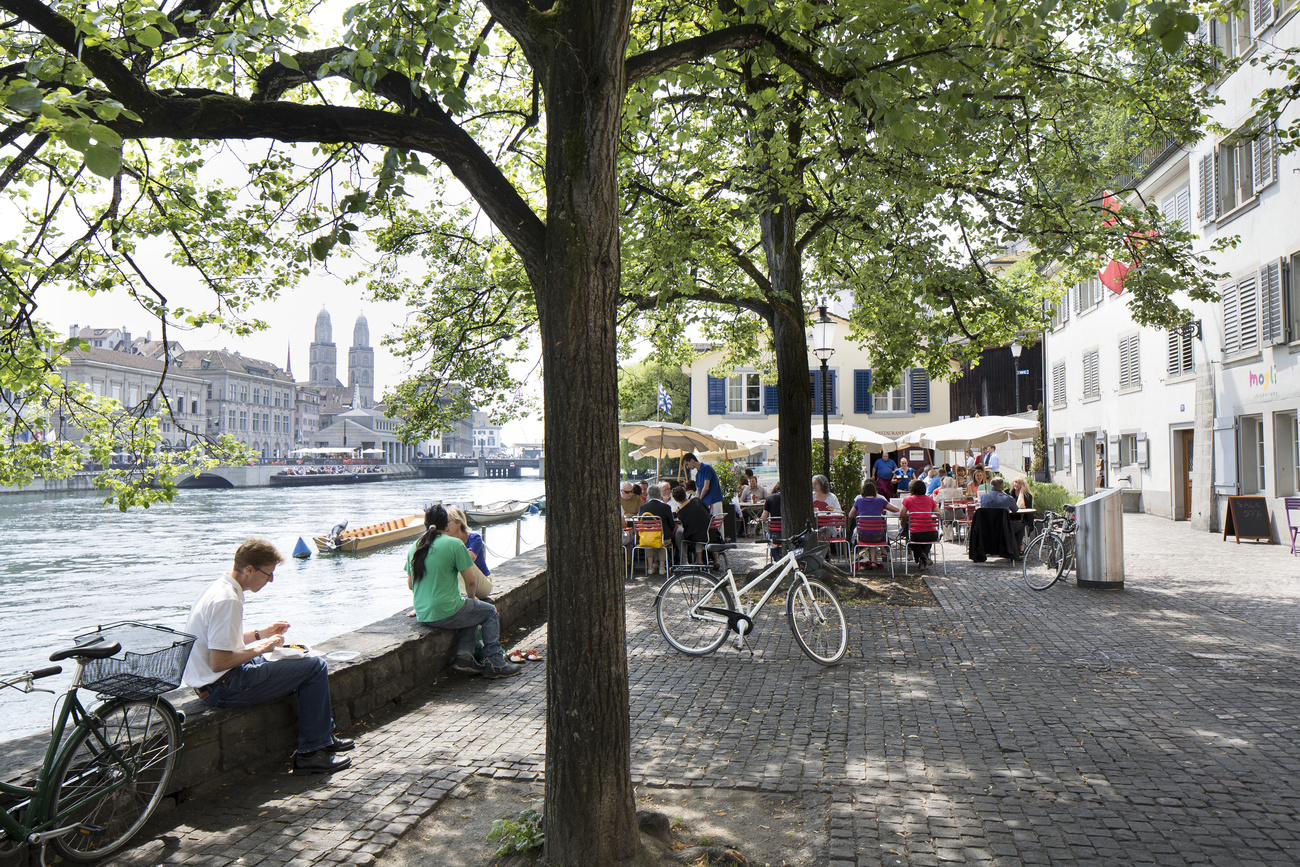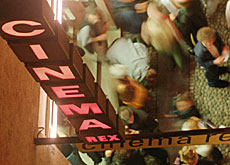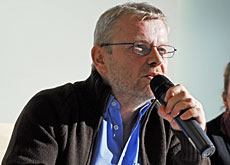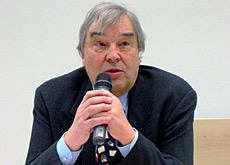Brazilian film scoops top prize at Fribourg

The 21st Fribourg International Film Festival has closed, with "A Casa de Alice" by Brazilian director Chico Teixeira winning the "Regard d'Or" award.
Jean-Michel Frodon, chief editor of the prestigious French film magazine Cahiers du cinéma, talks to swissinfo about the festival and the high quality of films in competition.
About 21,000 people attended the week-long festival, which ended on Sunday, dedicated almost exclusively to films from developing countries.
Thanks to the festival, several of the hundred films that were screened will be seen by a wider public. Frodon also plans to put together a special edition of Cahiers du cinéma dedicated to the Fribourg festival to highlight films that are “ignored by the market”.
swissinfo: How well do you know the Fribourg film festival?
Jean-Michel Frodon: Martial Knaebel, the festival director, has been telling me about it for 20 years now and I’m well aware of the high quality of films in competition. I also know from filmmakers from all over the world about the importance of the Fribourg festival for their careers.
swissinfo: You have a long experience as a festivalgoer. How is Fribourg different from other film festivals?
J.-M.F.: Fribourg showcases many excellent films, even if they have been already been shown elsewhere.
Lots of festivals like to highlight unusual films, but there comes a time when it just becomes ridiculous. It’s completely crazy to think that 200 amazing films are produced every year.
It’s much better to show a good film that has already been screened in Toronto or Venice than claim that you’ve discovered an unknown film genius, whose main attribute is exactly that…they are unknown.
Then Fribourg has a very good relationship with its public. Many festivals do a wonderful job but can be slightly cut off from reality. It’s very important for a festival to develop both for and with its film audience.
swissinfo: Does this act as a stimulus for the distribution of the kind of films shown here?
J.-M.F.: It’s very important for the life and atmosphere of a festival, and for what happens to films afterwards. It enables filmmakers and distributors to see what kind of emotions their films generate.
swissinfo: The Fribourg festival represents an almost unique opportunity to see these kind of films. Whose fault is that? – Hollywood, the distributors or the politicians?
J.-M.F.: All of them at the same time, but especially the politicians. The market prefers whatever can be standardised – that’s the definition of business, whether you’re talking about cars or films – in order to maximise profits.
Hollywood is the epitome of global standardisation. If there is no political readiness to make other kinds of films more accessible, then the market will make sure that there is always the same kind of films everywhere.
swissinfo: But the film industry usually replies that it is simply giving the public what it wants…
J.-M.F.: The Fribourg film festival proves the contrary. When there is a political decision – and I believe that was the case here – the public is present. The people who come are not stupid 51 weeks of the year and intelligent for the one week of the festival.
Normally they don’t have time to go and watch a film by a Taiwanese or Chadian filmmaker. But if you offer these things to the viewing public, they respond by paying to come and see them.
swissinfo, Carole Wälti in Fribourg
The “Regard d’Or” of the 21st Fribourg International Film Festival was awarded to “A Casa de Alice” (“Alice’s House”) by Brazilian director Chico Teixeira.
This is the first fiction film by the 49-year-old director, which was chosen for its “intimacy, complexity, superb acting and precise point of view on a universal story”.
The Ecumenical Jury Award and the FIPRESCI Jury Award as well as the “Don Quijote” Award each went to the film “Le Cercle des noyés” (“The Drowned Men”) by Belgium director Pierre-Yves Vandeweerd.
The 21st Fribourg International Film Festival ran from March 18-25.
The festival was created by Swiss aid agencies in 1980, and was known at the time as the “Third World Festival”.
The idea was to present the cultural variety of Africa, Asia and Latin America at a time when there were few distributors for Third-World films.
Originally shown in church halls, the festival films made it on to cinema screens in 1986.
It became an annual festival in 1992, and in 1994 was given its current name.
Jean-Michel Frodon was born in Paris in 1953.
He took his name from the film “Lord of the Rings”.
He has worked as a cinema critic for Le Monde newspaper, and since 2003 has been chief editor of the prestigious French film magazine Cahiers du cinéma.
He is the author of several books, in particular on modern French cinema, Woody Allen and films from developing countries.

In compliance with the JTI standards
More: SWI swissinfo.ch certified by the Journalism Trust Initiative











You can find an overview of ongoing debates with our journalists here . Please join us!
If you want to start a conversation about a topic raised in this article or want to report factual errors, email us at english@swissinfo.ch.